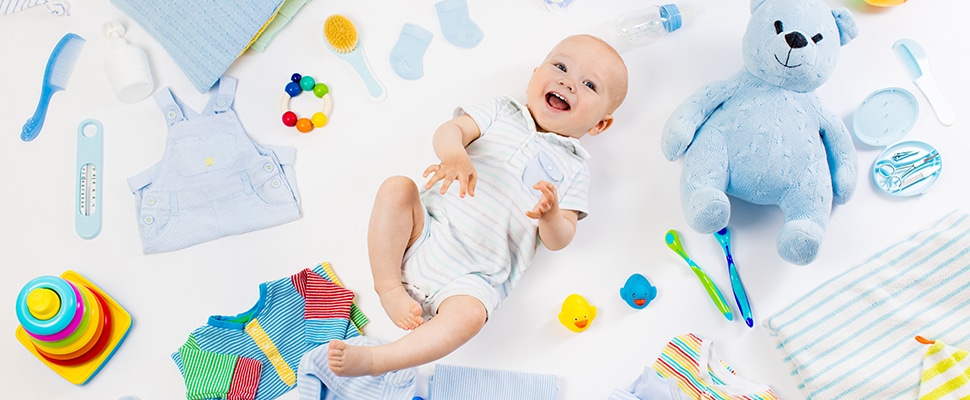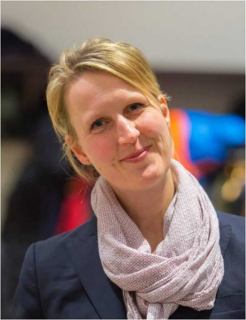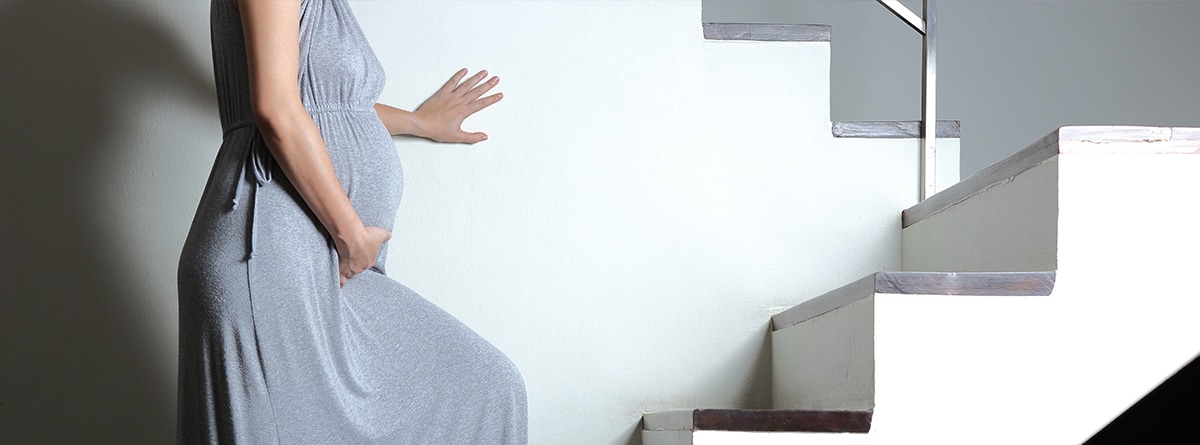
Das windeln Magazin:
Der Ratgeber rund um Schwangerschaft, Baby & Elternsein
Mit dem Wissen unserer Experten, ausführlichen Informationen und Bildern beraten wir dich bei allen Fragen rund um Schwangerschaft, Geburt, Entwicklung des Kindes und Elternsein.
Natürlich beraten wir dich auch zum Thema Windeln und erklären, worauf es beim Kauf vom Windeln ankommt, welche Arten es gibt und wo du die günstigsten Windeln für dein Baby kaufen kannst.
Windeln Ratgeber
Stoffwindeln vs. Wegwerfwindeln » Was ist richtig für mein Kind?
Welche sind die richtigen Windeln für mein Kind? Viele (werdende) Eltern beschäftigen sich mit dem Thema „Stoffwindeln oder Wegwerfwindeln?“ Wir bieten Ihnen hier eine Übersicht der verschiedenen Windelsysteme. Klassische Wegwerfwindeln…
Wickeltaschen Ratgeber
Wer mit dem Baby unterwegs ist, geht nicht ohne diverse Utensilien aus…
Windeln Test – welche Windeln sind die besten?
Wenn es darum geht, die besten Windeln für dein Baby zu finden,…
Windeln Ratgeber
Rund 6.000 Windeln benötigt ein Baby bis zu seinem dritten Lebensjahr. Eine…
Die windeln.de Experten
Scheinschwangerschaft » Symptome & Ursachen
Wenn die Psyche eine Schwangerschaft vorspielt – Die…
Wenn das Kind nicht in die Kita will » Was tun?
Nimm dein Kind ernst – dein Kind möchte…
Ernährungsplan Baby » Die ersten 18 Monate
Für einen gesunden Start ins Leben benötigt dein…
Fontanelle beim Baby & Neugeborenen » Was du wissen musst!
Fontanellen sind raffinierte Erfindungen der Natur. Neugeborene besitzen…
Bauchschmerzen in der Schwangerschaft » Ursachen und was Maßnahmen
Übungswehen oder Bauchschmerzen? Mehr oder weniger starke Bauchschmerzen…
Zerstörungswut bei Kindern » Was kann man tun?
Zerstörungswut bei Kindern Zerstörungswut gehört bis zu einem…
Unterleibsschmerzen & schwanger » Was tun in der Schwangerschaft?
Unterleibsschmerzen in der Schwangerschaft Alle Schmerzempfindungen einer Frau,…
Schwangerschaftsvergiftung (Gestose): Erste Anzeichen & Symptome
Eine Schwangerschaftsvergiftung wird auch als Gestose bezeichnet und…
Kindsbewegungen in der Schwangerschaft
Die ersten zarten Klopfzeichen aus dem Babybauch gehören…
Beckenendlage » Wenn sich das Baby nicht drehen will
Von einer Beckenendlage oder Steißlage ist die Rede,…
Hämorrhoiden in der Schwangerschaft » Was tun? | windeln.de
Vorbeugung durch ausgewogene Ernährung, Trinken und Bewegung -…
Himbeerblättertee: Einsatz und Wirkung in der Schwangerschaft
Die Wirkstoffe der Himbeerblätter wirken wehenfördernd und entkrampfend…
Augenfarbe beim Baby » Wann steht sie endgültig fest?
Augenfarbe beim Baby Blau, Grün, Braun – oder…
Epilepsie bei Kindern » Erkennung & Behandlung
Der Begriff Epilepsie stammt aus dem Griechischen und…
Baby & Kopf heben » In Bauchlage & Rückenlage Kopf heben üben
Ab wann können Babys den Kopf heben &…
Baby & Laufen lernen » Ab wann Babys laufen lernen & wie fördern?
Babyentwicklung: Die ersten Schritte – Zwischen dem ersten…
Babys Stuhlgang: Was sagt der Windelinhalt über das Befinden aus?
Die Art des Windelinhalts ist stark mit den…
Ab wann Babys sitzen & wie du dies fördern kannst
Babyentwicklung: Der Weg zum Sitzen – Für die…
Wachstumsschübe bei Kindern » Ursachen & Linderung
Mediziner vermuten eine Überdehnung der Bänder und Sehnen…
Autismus» Symptome, Ursachen, Diagnose & Therapie
Der Hollywood-Klassiker „Rainman“ aus den 1980er Jahren prägt…
Erste Hilfe bei Insektenstich » Wie bei Baby & Kleinkind behandeln?
Die Gefahr von einem Insekt gestochen zu werden,…
Schreikrampf bei Baby & Kleinkind » Das solltest du wissen
Schreien ist bei Babys nichts Ungewöhnliches, nicht immer…
Erste Hilfe bei Prellung, Schwellung & blauem Fleck
Schnell ist es passiert: Die ersten Gehversuche Ihres…
Nasenbluten bei Babys und Kleinkindern – Ursachen und Hilfe
Ursachen, Behandlung und Vorbeugung – In der medizinischen…
Taufsprüche » Die schönsten Taufsprüche aus Bibel, Zitaten und aller Welt
Ein Taufspruch gehört dazu Glücklich, dankbar und stolz…
Silvester mit Kind » Ein toller Start ins neue Jahr
Schon die Kleinsten staunen über die bunten Lichter…
Babys und Haustiere » Tipps fürs Zusammenleben
So funktioniert das Zusammenleben – Jeder zweite Deutsche…
Partnerschaft und alleinerziehend » So klappt´s
Trotz Kind: Die Hoffnung nicht aufgeben – Partnersuche…
Babyfreie Zeit: Wichtig für Mutter und den Partner.
Eltern sind rund um die Uhr berufstätig, denn…
Leben mit einem behinderten Kind » Umgang im Alltag
Versuchen Sie so normal mit Ihrem Kind zu…
Ehe » Steuerklasse 5 & 3 oder 4 & 4?
Verheiratete oder verpartnerte Arbeitnehmer können entscheiden, welche Steuerklassen…
Formalitäten nach der Geburt » Ein Überblick
Sie sind eher lästig, müssen aber dennoch erledigt…
Checkliste Mutterschaftsgeld | Windeln.de
Bei der Beantragung darf die Bescheinigung des Geburtstermins…
Staatliche Familienförderung: Was steht uns zu?
Informationen zu Kindergeld, Mutterschaftsgeld und Elterngeld…
Teilzeitarbeit für Mütter & Väter » Das sollten Sie wissen
Teilzeitarbeit für Mütter und Väter ist eine praktische…
Wer bekommt Elterngeld? » Wann habe ich Anspruch auf Elterngeld?
Voraussetzungen für den Anspruch auf Elterngeld – Wer…
Schwangerschaft
alles anzeigenKurzatmigkeit in der Schwangerschaft » Was tun?
Kurzatmigkeit in der Schwangerschaft gehört zu den Beschwerden, unter denen viele schwangere Frauen leiden. Bereits im ersten Schwangerschaftstrimester kann es durch die Anpassung des Körpers an die Schwangerschaft zu mehr…
Schwangerschaftscholestase » Ursachen, Symptome und Behandlung
Ein Anzeichen ist meist starker Juckreiz an den Hand- und Fußflächen – Starker Juckreiz in der Schwangerschaft – möglicherweise handelt es sich um eine Schwangerschaftscholestase. Sie tritt in Deutschland nicht…
Ziehen im Unterleib » Das können die Ursachen sein
Ziehen im Unterleib kennt jede Frau – während der Periode, als Mittelschmerz während des Eisprungs und zum Teil auch scheinbar völlig grundlos. Viele Mütter meinen, dass ein Ziehen im Unterleib…
Scheiden- und Gebärmuttersenkung » Ursachen & Behandlung
Vorbeugung durch Beckenbodentraining, gesunde Ernährung und Sport – Eine Scheiden- und Gebärmuttersenkung entsteht, wenn die Muskeln und Bänder des Halteapparats der inneren Geschlechtsorgane an Spannkraft verlieren und nicht mehr in…
Baby
alles anzeigen
Herpes: Wie gefährlich ist er für Babys und Kinder? | windeln.de
Eine Tröpfcheninfektion – Das Herpesvirus kann für Babys sehr gefährlich…

Baby & Drehen » Ab wann kann ein Baby sich drehen & wie fördern?
Ab wann können sich Babys drehen und wie kannst du…

Zahndurchbruch und -entwicklung » Probleme & Maßnahmen
Regelmäßige Kontrollen durch den Zahnarzt sind wichtig – Eine anstrengende…
Kleinkind
alles anzeigenDarmverschluss bei Kindern » Symptome & Behandlung
Besteht der Verdacht auf einen Darmverschluss ist ärztliches Handeln gefragt – Wenn…
Erste Hilfe bei Gehirnerschütterung
Obwohl die meisten Eltern und Betreuungspersonen stets bemüht sind, dass ein Kind…
Beliebte Beiträge
Wie viel Milchnahrung sollte mein Kind trinken? » Hebammen-Antwort
Wie viel Milch muss mein Kind trinken? So…
Die schönsten Glückwünsche zur Geburt » Sprüche, Zitate, Gedichte
Glückwünsche zur Geburt Hurra! – ein neues Leben…
Kinderkrankheiten mit Hautausschlag: Eine Übersicht
Neben Fieber und Erkältungssymptomen wie Husten und Schnupfen,…
Baby & Zahnen » Ab wann zahnen? Symptome, Anzeichen & Hilfe
Wenn Babys zahnen: Erste Symptome, Hilfsmittel & Pflege…
Unsere Ratgeber
Kindersitze im Test – Ratgeber
Um dir den Kauf des für dich und dein Kind richtigen Autositzes zu erleichtern, haben…Kinderschuh Ratgeber
Die ersten Schuhe nehmen Einfluss auf die gesamte Entwicklung des kindlichen Bewegungsapparates. Doch viele Eltern…Babyschalen Ratgeber
Ob gleich bei der ersten Fahrt von der Entbindungsstation nach Hause, beim sommerlichen Ausflug oder…Babytragen Ratgeber
Sicherheit und das Gefühl von Geborgenheit ist für Babys von großer Bedeutung. Hier setzt die…Luftbefeuchter Ratgeber
Im Winter sorgt Heizungsluft für trockene Augen und Schleimhäute, während Kindern im Sommer Staub und…Motorikspielzeug Ratgeber
Motorikspielzeug fördert auf spielerische Art und Weise die motorische Entwicklung von Babys und Kleinkindern. Während…Kuscheltier Ratgeber
Für Kinder sind Kuscheltiere wichtige Begleiter im Alltag. Nicht selten sind sie überall mit dabei:…Kinderfahrradsitz Ratgeber
Kinderfahrradsitz Berater Gemeinsamer Fahrradausflug mit den Eltern? Das ist auch für Kinder möglich, die noch…Wärmflaschen & Körnerkissen Ratgeber
Unabhängig von Witterung und Jahreszeit sind Wärmflaschen und Körnerkissen ein wohliges Erlebnis für die Kleinsten.…Geschwisterwagen Ratgeber
Zwillinge, Drillinge oder zwei Kinder im kurzen Abstand hintereinander: Ein Geschwisterwagen bietet bei jeder Familienplanung…Krabbelschuh Ratgeber
Zwischen dem 7. und 10. Lebensmonat beginnen Babys, krabbelnd die Welt zu erkunden. An aufrechtes…Toilettentrainer & Töpfchen Ratgeber
Für Kinder ist es ein echter Meilenstein in ihrer Entwicklung, wenn sie zum ersten Mal…Heizstrahler Ratgeber – Wärme fürs Baby beim Wickeln
Wenn Mama und Papa bereits während der Schwangerschaft das Kinderzimmer mit allem Nötigen einrichten, sollte…Laufgitter Ratgeber
Mamas und Papas kennen das Szenario: Kaum klingelt es an der Tür, zieht sich das…Wickelkommoden Ratgeber
Bereits vor der Geburt sollten sich werdende Eltern überlegen, wie und wo sie ihr Baby…Milchnahrung Ratgeber
Muttermilch ist die beste und natürlichste Nahrung für ein Baby. Wenn Mama jedoch nicht stillen…Schwimmhilfen Ratgeber
Auf einen Besuch im Schwimmbad freuen sich Kinder in den warmen Sommermonaten immer wieder. Insbesondere…Windeln Ratgeber
Rund 6.000 Windeln benötigt ein Baby bis zu seinem dritten Lebensjahr. Eine…Babywippen Ratgeber
Füttern, wickeln, in den Schlaf wiegen und jederzeit beaufsichtigen: Gerade frischgebackene Eltern fühlen sich im…Rückentrage Ratgeber
Mit einer Rückentrage können Eltern ihre Kinder an jedem Ausflug teilhaben lassen – und ihnen…
Familie
alles anzeigenWelcher Altersunterschied ist bei Geschwistern der „richtige“?
Wenn Eltern sich mehr als ein Kind wünschen, steht früher oder später eine Frage im Raum: Welcher Altersunterschied ist für die Geschwister der richtige, damit sich die Kleinen im Idealfall…
Mit Kind in die Berge » Worauf muss man achten?
Ausreichend Pausen einzuplanen ist sehr wichtig – Die Bergwelt kann für die ganze Familie zu einem Erlebnis werden. Eine sorgfältige Planung ist allerdings wichtig, um keinen Unmut heraufzubeschwören. Es gilt,…
Gemeinsames Kinderzimmer » Die Vor- und Nachteile
Ein gemeinsames Kinderzimmer – das kann Vor- und Nachteile haben. Ob es sinnvoll ist, den Nachwuchs zusammen in einem Zimmer unterzubringen, ist sicher eine Frage des Alters. Wann immer es…
Camping mit Kind » Was ist zu beachten? | windeln.de
Camping mit Kind – Entspannung oder doch eher Stress? Das kommt unter anderem darauf an, wie alt das Kind ist, ob es sich um einen familien- und kinderfreundlichen Campingplatz handelt…
Häufige Fragen
Darf ich Säuglingsnahrung wieder aufwärmen?
Darf ich Säuglingsnahrung wieder aufwärmen? Nein, dies sollte, genau wie bei abgekühlter…
Muss ein Baby immer eine Mütze aufsetzen? » Hebammen-Antwort
Muss ein Baby immer eine Mütze aufsetzen? Dabei sollte man zwischen drinnen…
Brauche ich einen Einlauf vor der Geburt?
Brauche ich einen Einlauf vor der Geburt? Nein, ein Einlauf gehört nicht…
Warum schläft mein Baby nicht durch? » Hebammen-Antwort
Warum schläft mein Baby nicht durch? Das ist wohl die Frage aller…
Darf ich mit Wochenfluss baden? » Hebammen-Antwort
Darf ich mit Wochenfluss baden? Sie sollten damit warten, bis der Wochenfluss…
Recht & Finanzen
alles anzeigenMutterschutz bei Frühgeburt » Das solltest du wissen
Der Mutterschutz für Frühchen-Mamas – Kommt ein Kind…
Rechte am Arbeitsplatz in Schwangerschaft und Stillzeit
Hinsichtlich der Arbeitszeit gibt es in der Schwangerschaft…
Staatliche Familienförderung: Was steht uns zu?
Informationen zu Kindergeld, Mutterschaftsgeld und Elterngeld…
Leistungen der Krankenkassen » Welche Ansprüche habe ich?
Leistungen der Krankenkasse Während der Schwangerschaft…



;%20)

























